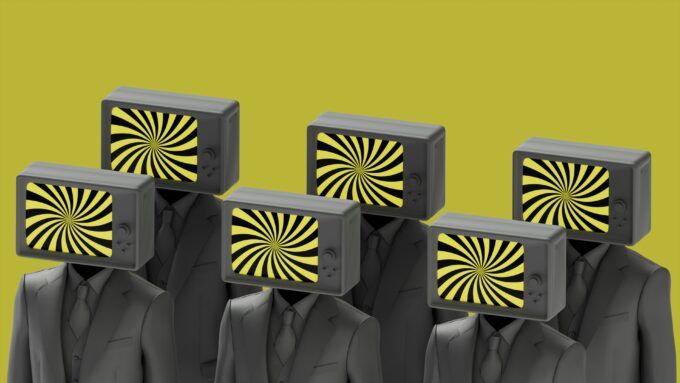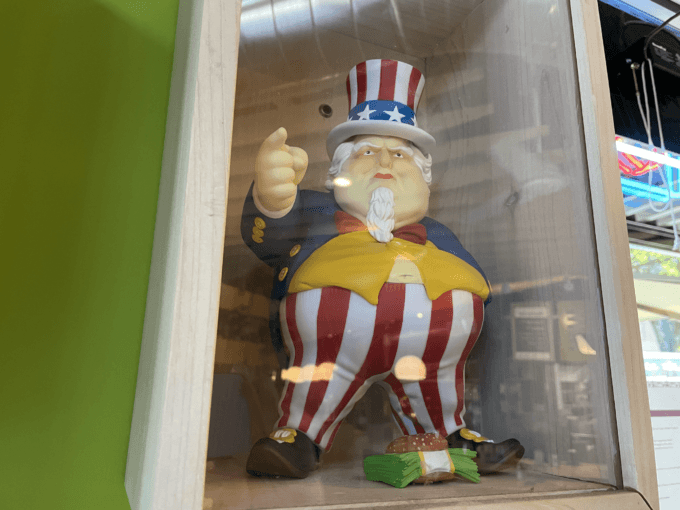
Reality of Change
Published on http://www.counterpunch.org
“It seems like a bad dream,”
— The New York Times. March 28, 2018
Former President Jimmy Carter, recently interviewed on the PBS Newshour repeated what often seems to be our bottom line: “I think the future of the politics in America is dependent on what Mueller will have come forward to allege.”
But then again, there is no “our” now.
Whatever Mueller’s investigation comes up with will surely be countered by “alternative fact,” not simply by President Trump and the many toadies who surround him but by that same impenetrable coalition of supporters Trump has had from the start. This will leave any indictments or impeachment moves as nothing more than accelerants to civil war, rather like the Kansas-Nebraska Act and John Brown’s raid on Harper’s Ferry, called the fuse that ignited the powder keg of secession.
Many — not enough to keep Trump out of the White House in 2016 — hope that the Congressional elections in November will topple or at least seriously damage the Republican hold on Congress. Maybe those elections will wake us up into some semblance of unity, or, rather more likely wake some up angry and others relieved. Or maybe the Speaker of the House, Paul Ryan, will decide that even his hero Ayn Rand would try to remove Trump from the presidency. However, Mr. Ryan seems to see great promise in fulfilling what Rand called “rational individualism” with the irrationalist Donald J. Trump.
Various rages over guns, opioids, police shootings, Trump’s promiscuity, #MeToo, Dreamers, walls, Civil War statues, Russian tampering with elections and so on add up to “white noise” in the Neoliberal playbook, which is solely concentrated on one frequency: keeping the Federal government from intruding in the play of the market.
This is clearly demonstrated, for example, in Secretary of Education Betsy DeVos intent on solving all problems with education by devolving them to State and local government. This has much to do with the Neoliberal antipathy to the Feds as well as her family’s total control of education in her own state, Michigan. One wonders then what DeVos’s view of California’s recent confrontations with the Feds would be. Everything should devolve to state control except, I suppose, when those states are coastal and liberal.
The power of capital now has so far exceeded that of labor and transnational corporate goal of profit has so far diminished any political or economic interest in “We the people” that we now, despite examples of the tyrannies of state control in Europe in the last century, must accept the fact that there is no authority but the Federal government able to temper the play of our wild west market. However, owning that government, which is now under the ownership of Trump, is like Willie Sutton owning the bank.
Too many now believe that posts on Facebook or tweets on Twitter will serve nicely for us, not “We the people” but “me.” A perennial favorite of all political writers addressing a ferociously divided readership is a reference to the view of a visiting Martian. I believe that visitor would see the difficulties of extracting falsehoods and brain washing posts from social media because it is clearly now the dominant communication pathway for all matters, from cute puppy videos to “evidence” that Hillary Clinton was running a child-sex ring in a Washington D.C. pizza parlor.
Beyond upending all previous forms of discourse, social media, in the view of our visiting Martian, seems to be upending all previous social and political structures while serving quite nicely an economics based on manufacturing minds to serve the interests of profit making.
Whether Mr. Zuckerberg can tamp down those interests, which in fact serve the profit making interests of Facebook itself is a future matter. Such conflict places him in a state of aporia, a pathless state. What kind of change can he make? What kind of testimony can he give to the American and British tribunals seeking to question him?
Our national problems are of a different magnitude than Mr. Zuckerberg’s personal problems, our visiting Martian reminds us. Mueller to the rescue or big wins in the fall elections?
The fall elections seem to be the best shot at changing the player roster and so do more than stunned Republican are doing to restrain Trump’s handling of a liberal democracy like a Trump Corporation opportunity. But are “the Republicans facing a treacherous political climate in the fall elections?” which a Times editorial asks. From another perspective, you could wonder whether the Democrats are also facing such a treacherous climate.
The answer here lies in what is perceived to be the troubling issues and whether President Trump is acting, or pretending to act, to resolve them. If you put aside Liberal objections to the man, and they are many, you find more objections to issues of justice, equity and enfranchisement than to the inescapable drive to plutarchy of our economic system.
This may be partially due to the fact that Liberals doing well in the present economic system, that is, the dividend recipient class, have as much or as little to complain about with that system than do the Neoliberals. And with the exception of the election of Trump as president, those who cannot take advantage of a “money is speech” license had little or no voice in U.S. politics. Trump addressed these people, promising to make America great again in ways in which each of them would be great. In an uncanny way Trump knew how so many envisioned a personal greatness. This is mystifying because there is scant connection in Trump’s life with anything beyond his own image and yet he targeted the American mass psyche with impressive accuracy.
Trump addressed himself to phenomenal realities, to the ways in which the country should appear but didn’t because of all the villains he named. Thus, having or not having money problems was not the totality of the way in which many saw what was “great” and what was fallen from that greatness. What problems could be traced to the built in inequities of the economic system were translated into more graspable bullet points involving job stealing foreign intruders, café latté coastal elites, inept, timid international dealings, soft on crime and national security liberals and so on. Trump kept the blame and salvation game on an instinctual, gut level, finding it easier to play to the worst devils of our nature than to our best angels.
Bernie Sanders threw all his punches at an economic system foundationally flawed. Perhaps because such a critique involved an understanding of economics beyond those who are only schooled in how to win in such a system, and perhaps because any such critique seemed to have already been made by the Marxists and dismissed, rather like Freud among the psychologists, Sanders had less of a chance to reach the victims of that system than did Trump. At this point, Trump’s brand of relief amounts to no more than any relief he can give the Trump Corporation in the eight years he expects to be president.
It may be that both Liberals and Neoliberals are worried about Trump leading us to war. With John Bolton appointed National Security Adviser, we can expect that at 69 years of age, Mr. Bolton will not suddenly change his “Go to war!” advice to the president. I do not see any interest on President Trump’s part in doing so but Bolton will be useful in the game of preemptive threat and bluff that is in this president’s view artful diplomacy. Bolton’s very presence in this position as a man who is anxious to preemptively attack Iran and North Korea will, in Trump’s view, generate better deals for the U.S. We will have good deals and not warfare.
The ludicrousness of this perspective puts us in a rush to get Trump out of office, along with a cabinet reminiscent of “the Reich cabinet of national salvation.”
This change, however, dependent upon Mueller and the fall elections, cannot be accomplished by fear and loathing. If the conditions that Trump instinctively responded to are not recognized and no effort therefore is made to change them, then the arrangement on our political chessboard does not change.
There is a phenomenal imaginary in which a growing number of Americans shifting not upward but downward live within which is not dealt with by exclamations of abhorrence and revulsion directed at Trump. Neither is this imaginary understood and dealt with by dismissing those who live within it as ‘Deplorables.”
There were serious problems to liberal democracy and democratic ideals in the U.S. before Donald Trump took to the campaign trail. When you have the wealthiest top 1% owning as much as 40% of the country’s wealth and more than the bottom 90%, when the bottom 90% hold 73% of all debt, when wage growth in the United States averaged 6.21% from 1960 until 2018, while prices in 2018 are 741% higher than in 1960.
The share accruing to middle-income households was 43% in 2014, down substantially from 62% in 1970, which means that we have devolved into a pre-French Revolution binary society: rich, poor, and a diminishing middle class.
What’s different between our plutarchy and the ancien régime is that the recollection of middle class life, either directly experienced or observed in the previous generation, lingers on and those fumes of former middle class well-being linger and have created the seething anger and revolt fever which has brought us Donald J. Trump, a man who by his own mouth does “Confound the ignorant, and amaze indeed/The very faculties of eyes and ears” but has responded to this anger at a populist level, a level of the spin of the hyperreal.
This hyperreality also pre-dates Trump. We have quite rapidly moved from a trust in what can be authorized external to our own opinions to a lively battle to create, change and impose our own “narrative” of things upon the world. That transition was already made before Trump campaigned for president. Like a clever salesman at the door, Trump sized up the condition of the American mass psyche and reached for it on the same Reality TV channel Americans were now on. That is what Baudrillard called the hyppereal channel, very far from reality itself.
A casino type economic system had already converted liberal democracy into a rich/poor divide that historically runs either into revolution or into enslavement. Of enslavement, there are many forms, both physical and mental as in black African slavery in the American south or the Brave New World kind in which a soma pill makes us all pliable.
Although our wage allocations definitely connect to outright slavery, we are as clearly moving toward a drugging of America, something Big Pharma sees as a win-win situation. Profits are made and the rising anger of the increasing immiserated is subdued. This drugging of America was ongoing before Trump, although he cannot rouse himself to fund an adequate response to our opioid epidemic. Whether he believes this is a “personal choice” matter (“Say no to drugs!), or is not personally interested in the matter, or whether he won’t intrude on Big Pharma’s profit making cannot be determined. It may be all three.
Right now, it seems that the way to change is to recognize the rooted economic and socio-cultural affinities and affiliations of both Democrats and Republicans. A mono-party preempts any change because all real opposition, which is to the underlying economic system plunging the political system into an autocratic plutarchy, is pre-empted.
What would then emerge of necessity is a political party that represents those who are axiomatically excluded under the present economic system. This would be a party not comprised of those living in gated communities or collecting dividends as they sit back and allow their money to work for them in between jaunts to tropical paradises where the native population serves them with a smile for a good tip.
This new party would be one for those whose money does not work for them but they work for their money, a party of worker owned businesses. That is a far superior compromise to even the Missouri Compromise and our chance of avoiding another civil war.













